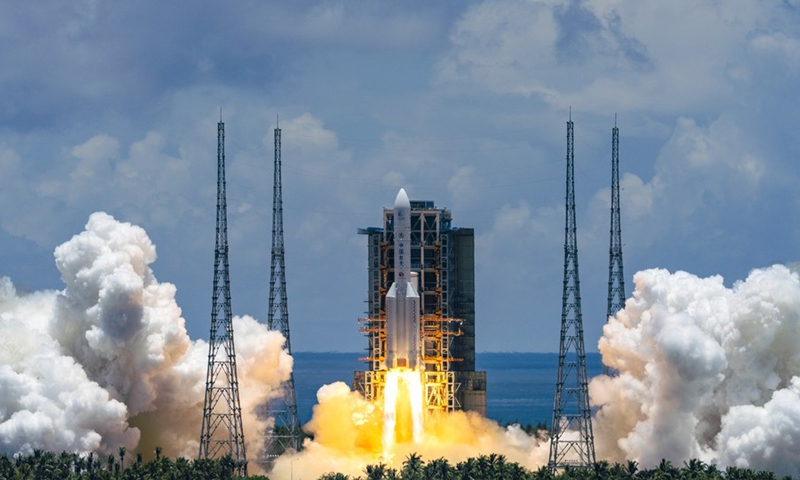
A Mars probe is launched on a Long March-5 rocket from the Wenchang Spacecraft Launch Site in south China's Hainan Province, July 23, 2020. (Xinhua/Cai Yang)
The NATO setup of a new space command center using the excuse of countering China and Russia is akin to "a thief crying 'stop thief,'" Chinese analysts said Wednesday, pointing out that the US-led move is meant to seek military superiority in a future space war and may provoke a space race.
The creation of the space center at the Ramstein air base in Germany is expected to be agreed on Thursday at a meeting of NATO defense ministers, according to Politico, citing NATO's Secretary-General Jens Stoltenberg on Tuesday.
Stoltenberg claimed the space center will address challenges posed by China and Russia in their anti-satellite system. Chinese analysts rebuffed such claims, saying NATO's real intention is to beef up their spying, communication and space-based combat capabilities.
Given its special geographical location, the center is capable of monitoring satellites over Europe and Asia, enhancing anti-satellite monitoring and destroying, and collecting data of hostile satellites for NATO nations, Wang Ya'nan, an industry expert and chief editor of Aerospace Knowledge magazine, told the Global Times.
Chinese military expert and TV commentator Song Zhongping told the Global Times that the NATO system serves the US' space ambition.
To reach this target, the US intended to establish such an equivalent combat system and space force within NATO, Song said, calling it an act of "a thief crying 'stop thief.'"
Combined with its current space capabilities, the access of such data would provide the US with strong advantages in future space warfare, Wang said.
Many countries want to maintain space peace and jointly develop and utilize outer space. However, with the establishment of the US Space Force in 2019, uncertainties have increased significantly, and the US is driving the space race to serve its goal of extending hegemony in this field, analysts said.




